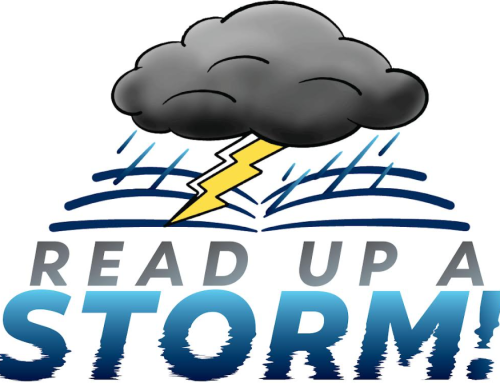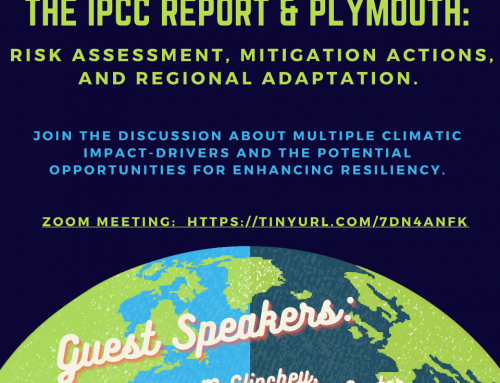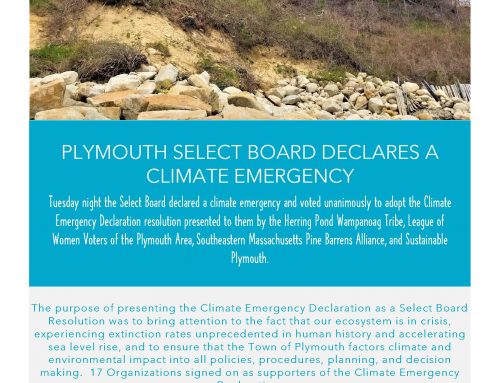Newsletter December 2020
December 13, 2020 – Read the latest updates from Sustainable Plymouth including working groups’ activities, an opportunity to support a solar by-law proposal in January, and highlights from other organizations and town committees.
Next Meeting:
December 21, 2020 at 6:30pm via Zoom. Learn more or RSVP here.
Food Sustainability (Native/Edible Plants)
Botanists Irina Kadis & Alexey Zinovjev have positively identified hundreds of plants at Manomet Recreation Area and Indian Brook Conservation Area, which is also the home of a new walking trail. We are working with local organizations on an interpretive signage and educational food project here. For more on the beneficial species discovered in the area visit salicicola.com/projects/mra/.
Sustainable Restaurant Project
Sustainable Plymouth members have begun reaching out to local restaurants regarding the Sustainable Restaurant program. We are sharing educational materials with a handful of restaurants around Plymouth and asking for feedback.
New Working Groups
We are looking for volunteers for the Plastic/Waste (facilitated by Ken Stone) and Wildlife/Habitat (facilitated by Jackie Millar) working groups. Please email sustainableplymouth@gmail.com if interested.
Letter Sent to the Town of Plymouth
Sustainable Plymouth with the Herring Pond Wampanoag Tribe, Herring Ponds Watershed Assoc, SEMPBA, and Citizens Climate Lobby Southeastern Mass. Chapter have sent a letter to the Town of Plymouth regarding action items in line with the Municipal Vulnerability Plan (MVP) report. The letter was acknowledged via email, the Town Manager’s Report, and at the Select Board Meeting. The Planning Board has issued a memo to the Town Manager and she has assured us that she is still working on this.
Solar By-law presentation to the energy committee
Sustainable Plymouth member Anatol Zukerman will be presenting a Solar Energy Bylaw to the Town’s Energy Committee on Tuesday, January 12th and he could use your support via public comments. The bylaw would be effective on commercial projects 10,000+ square feet and residential developments of 10 or more units. Please save the date! We will share further instructions on public comments and how to show your support at our December 21st meeting.
MassBays Ecosystems Workshop
Evelyn Strawn attended the Mass Bays Ecosystem workshop.
The presentation is available here: https://www.youtube.com/watch?v=m3ND6d4LOoY
Massachusetts NetZero 2050 Summit
Melanie attended the Massachusetts NetZero by 2050 Roadmap Zoom meeting. The final plan is due to be available to the public in January of 2021.
More information can be found here: https://www.mass.gov/doc/3272020-slide-deck-from-public-webinar/download
https://www.mass.gov/info-details/ma-decarbonization-roadmap
In Our Community
Senior Voices
Melanie met with members of the “Senior Voices”, who are choir members through the Center for Active Living. We discussed some of the issues affecting them and how we may work together to bring more attention to causes affecting seniors in Plymouth. One of the issues brought up was unsustainable HOA fee increases, e.g. 5% yearly, which is well beyond COLA/CPI (approx. 1.3%) Sustainable Plymouth has recently approached the subject of working with HOAs on environmental issues. We will discuss addressing this issue as part of a larger discussion.
Updates from the Town Water Conservation Committee
A statement from Eric Cody, Chair of the Water Conservation Committee:
Why should the Town spend now to conserve, assuming the cost of a conservation measure to save a gallon is precisely the same as the future cost (in today’s dollars) to build a well to pump a gallon out of the aquifer?
We’ll assume for the sake of argument that the avoided capacity cost of the future well is the same as the upfront cost to conserve – no economic difference here because of our assumption.
However, the Town saves not only by deferring or eliminating the capital cost to acquire the land and build the new well capacity, but also the energy needed to operate the well and distribute the water throughout the system.
There are environmental externalities such as tree removal (carbon offset) and habitat loss that cannot be directly quantified but add weight to conservation.
And one I didn’t mention last night, the Town saves at least 10% by not moving the gallon of water around the system. When you save a gallon at the customer’s location, you avoid all the associated losses through leakage on the system that would have occurred it that gallon had been pumped out of the ground and distributed.
When all is considered, the Town should probably be willing to spend at least 20% more to conserve water than to add the same amount of new firm, capacity down the road when we compare apples-to-apples.
SOUTH SHORE COMMUNITY ACTION COUNCIL/ FIRST PARISH FOOD DRIVE
URGENT FOOD DRIVE FOR SOUTH SHORE COMMUNITY ACTION COUNCIL
The SSCAC in Plymouth runs a food warehouse supplying 45 food distribution centers in the region. The First Parish Unitarian Church church has long supported their “Back Pack Food For Kids” program. With all the repercussions of COVID, the demand is outstripping their supply. At this juncture, the center needs as much assistance as possible. First Parish is having a food drive over the next three months to help meet the need.
Donations can be dropped off at the church between 10 am and 1 pm on November 21th, December 19th and January 16th
Volunteers will be waiting at the roundabout by the parish house to receive donations of food as well as any extra bags you may wish to contribute (paper or plastic). The food warehouse could use more bags to deliver packages to the distribution centers. Please wear a mask and stay in your vehicle when you arrive. Volunteers will take the items from your car. Please package the food in a bag or other container versus bringing loose items. The church’s Parish House is located at 12 Church Street which is downtown and off of Town Square (where the Town’s community Christmas tree is erected each year in front of the National Pilgrim Memorial Meetinghouse – the stone church at the top of the square)
Foods Needed For the Back Pack for Kids Program
Peanut Butter; Jelly (plastic bottles); Cereal (small boxes; Canned Soup (or stew); Granola Bars; Pretzels/Goldfish (small bags); Pudding Cups; Peaches/Pears (canned); Macaroni & Cheese; Canned Green Beans; Canned Corn & Carrots; Heat & Eat Meals; Fruit Snacks/Fruit Roll Ups




